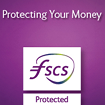Helping you avoid scams?

Protect Yourself Against Scams
It would be hard to come by someone who hasn’t been caught out by a scam in recent years – and near impossible to find someone who hasn’t at least received a scam email, text, or phone call. But scams are getting trickier and trickier to spot, so we thought we’d share a few quick steps to help protect yourself against these fraudsters.
If you get an email, text, direct message, or phone call that feels a little off, remember to:
- Stop and give yourself some time.Don’t be rushed into anything as scammers usually take advantage of the immediacy and panic you feel when you’re presented with a scam. Put the phone down, do some research and always take your time.
- Never disclose any personal information.Passwords, one-time passcodes, memorable information, PINs – basically, anything that would help a scammer get into your accounts and get a hold of your money or credentials. It’s your identity, so keep it safe.
- Be password savvy.Make sure your passwords are unique and difficult to hack. Uppercase, lowercase, special characters and numbers should be included. Most smartphones have a way to save your passwords so you won’t forget them – just remember to keep your phone super secure!
And once you’ve done these and are trying to figure out if something is legitimate, remember our SCAMS tips:
-
S = SCAM WEBSITE CHECKER
There are lots of online scam website checkers, meaning you can usually find out if you’re dealing with a scam.
Through Citizens Advice, you can check if something might be a scam online, and you can get in touch with a scams advisor if you’d prefer to speak to somebody.
You’ll also find useful information and up-to-date advice about the latest scams and fraud at Take Five to Stop Fraud, including guidance on how to report them.
You can also use a governing body to search the legitimacy of a business. If they’re required to be regulated by a governing body, like the Financial Conduct Authority, you can double-check the business through them to check if it’s a scam. -
C = CHARACTER
If you’re unsure about a website or you just want to double-check if it’s authentic, you can check their character first.
A legitimate company would’ve built a reputation online, whereas if a website appeared overnight, then it won’t have had time to develop a footprint. Trustpilot or Feefo will have a score and other user’s experiences that you can check against. If it’s a site you can trust, it should have a decent score and lots of reviews dating back a while.
You can also look for a padlock just before the website address – any site that requires a transaction or for you to login should be covered by ‘HTTPS’ – the ‘S’ literally meaning ‘secure’. If a site doesn’t have this, double-check the authenticity of the website before proceeding. -
A = ASK
If you’re really worried, you can also simply reach out and ask someone.
Maybe you’ve done your online due diligence, but something still feels a little iffy. You can always call the company or live chat (if they have it) to double-check if something’s real.
Imagine you get a call from your ‘bank’, and they say you need to ‘secure your money as it has been compromised’ by moving it into a different account. Normally these things need to be done immediately and in your anxious state, you do as you’re told and lose everything. In this situation, put the phone down, give it a few minutes and then call the company back using the number on the legitimate website and double-check the claims.
It's better to ask than to risk it! -
M = MISTAKES
Lots of scam emails or texts include grammatical errors and simple mistakes that, if we took a small pause to look at carefully, would be pretty easy to spot.- Check the email address/web address/number – if you receive an email from a company but the email address looks strange, it might not be from the official company.
- If they use your email to address you, or simply say ‘Hi’, they clearly don’t know who you are and don’t have your proper details in the company database.
- Check for too many spaces in the text, random punctuation, simple spelling mistakes and logos/images that don’t look right.
-
S = SOCIAL MEDIA
Nowadays, most reputable companies have some kind of social media presence, so it’s a good idea to do a quick search and a snoop before dealing with the company.
You can have a look at X (formerly Twitter), Facebook, LinkedIn, and Instagram to find the company’s official page. Then, you can look at if they’re active, what kind of content they’re sharing, and even look at comments and mentions to see if they have lots of complaints from real customers. If you’re still worried, remember to reach out and ask them. If they respond to your message and reassure you, then it’s probably not a scam.
We know that your finances are important to you, so we’ll always want to help you keep it secure. Follow these tips, and you’ll be on your way to beating scammers and keeping your money safe.
Popular posts like this
Fraud
- Helping you avoid scams?
- The 5 biggest scams out there right now and how you can avoid them
- 5 ways to spot a scam website
- Scams | what to look out for
- Keeping your savings safe and secure
- Everything you need to know about Strong Customer Authentication (SCA)
- 7 Tips to stay safe on social media
Categories
More news
Financial Services Compensation Scheme
Your eligible deposits held by a UK establishment of Charter Savings Bank are protected up to a total of £85,000 by the Financial Services Compensation Scheme, the UK’s deposit protection scheme. Any deposits you hold above the limit are unlikely to be covered. Please click here for further information or visit www.fscs.org.uk.





